Despite not being in the path of totality, PV students flooded the sidewalks outside of their sixth and seventh period classes to catch a glimpse of the solar eclipse on April 8, many sporting eclipse glasses and gazing in awe at the rare astrological event.
While much of the discourse surrounding the eclipse was about the once in a lifetime nature of the event, a solar eclipse is not as rare as many believe. Every year, there are between two and five total solar eclipse events somewhere on earth; a far cry from the belief that one occurs only once every several years.
Which brings up the question of why solar eclipses are such cultural events, and why so much value is placed upon them.
Michael Zeiler, eclipse cartographer, describes experiencing an eclipse as a “peak life experience,” a sentiment that is shared with many others as well. Kelly Korreck, NASA’s eclipse program manager, describes the eclipse as a “full body experience.”
Homeschooled senior Lydia Hains had the opportunity to see the eclipse in totality and described the experience as being very emotional. “There’s a feeling of connectedness with the people around you. Everyone’s watching and waiting just like you. And when the moon completely covers the sun and everyone is whooping and cheering together. It felt satisfying and complete to see the ring of white around the moon and the darkness around. It made me so happy and full feeling,” she said.
Senior Jasmine Barnes also noticed the social aspect of the event, recalling an article that pictured groups of people from different parts of the world watching the eclipse. “I just thought it was really cool how like, in this little moment, everyone was doing the same thing. Everyone was just looking at this sky and was like, oh my gosh, look at this phenomenon,” she said.
Barnes only experienced the eclipse partially, but still found it awe-inspiring, stating, “I’ve never seen anything like it clips before so it was really cool for me I felt like I couldn’t stop looking at it like even when it was over and it was like back I kept putting on my glasses and seeing the small sliver that I could.”
This is not a new reaction, as civilizations for thousands of years believed the solar eclipse held significant religious and spiritual meaning.
The reason why so many people experience an astrological event occurring thousands of miles away in such a physical and personal way is likely due to psychology, and the importance of experiencing peak moments to disrupt monotony.
Peak moments are a psychological phenomenon when one experiences, “transcendent moments of pure joy and elation” according to the Verywell Mind psychology journal; a concept developed by Abraham Maslow, along with the hierarchy of needs, to explain what is necessary to achieve satisfaction.
According to Maslow’s theory, once all physical needs have been met, psychological needs must also be satisfied. These psychological needs include everything from love and respect to the acceptance of logic and morality.
Experiencing peak experiences is a vital part of satisfying the needs of self-actualization; the category at the top of Maslow’s pyramid. This category deals with the fulfillment of individual potential. For many, peak experiences serve as a motivation to seek further satisfaction, as the desire to feel that level of joy again inspires action.
A combination of both a fascinating phenomenon and a transcendent experience, the eclipse is far more than an astrological event. But beyond the minute or two of distraction, events that spark wonder and joy are an important part of fulfilling psychological needs.


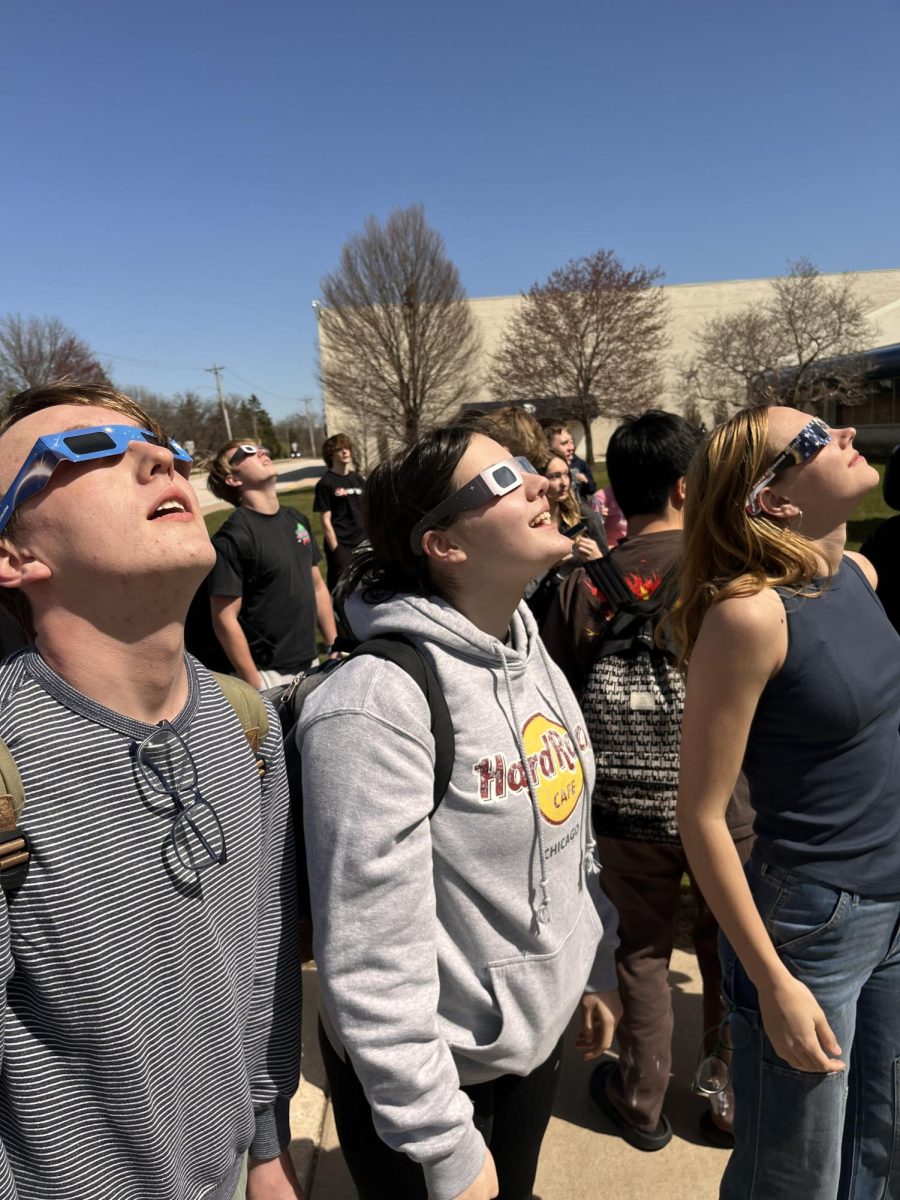






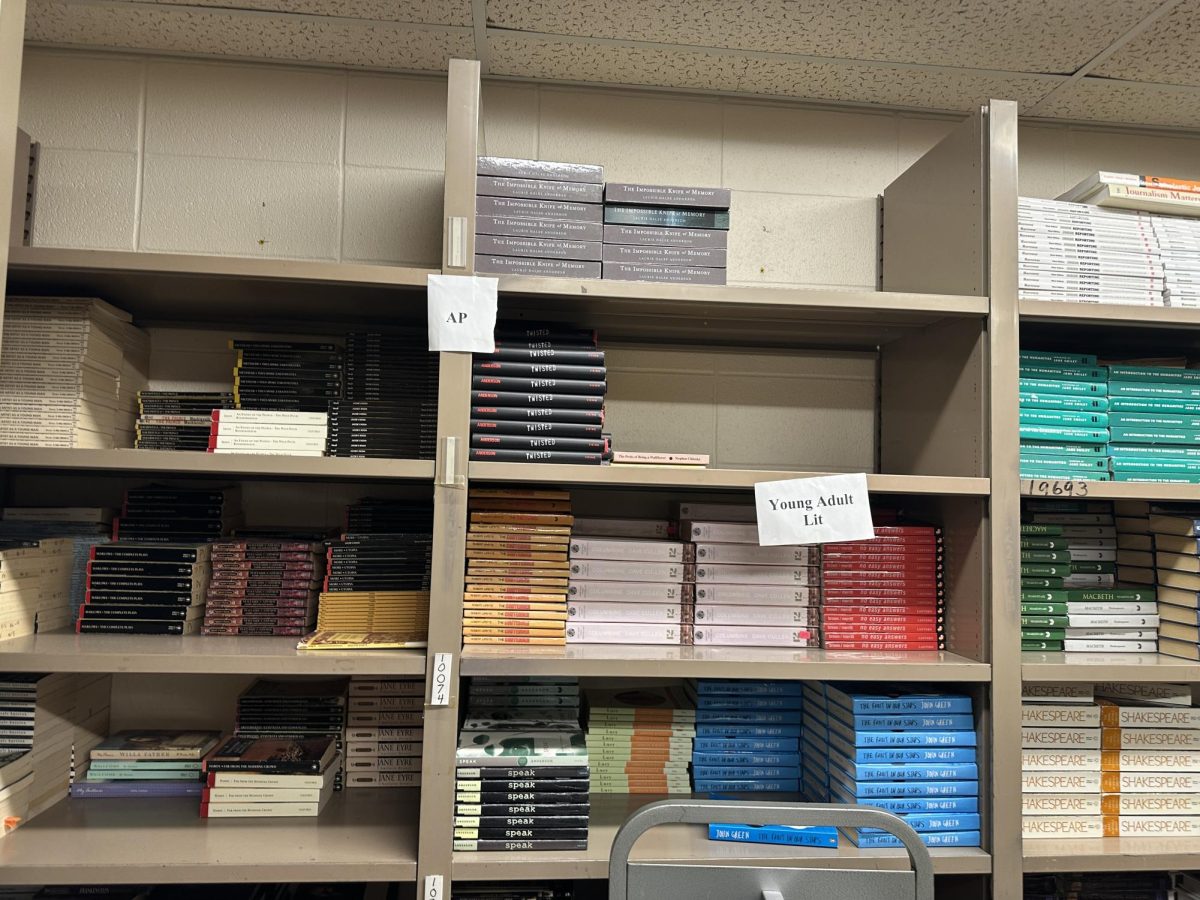
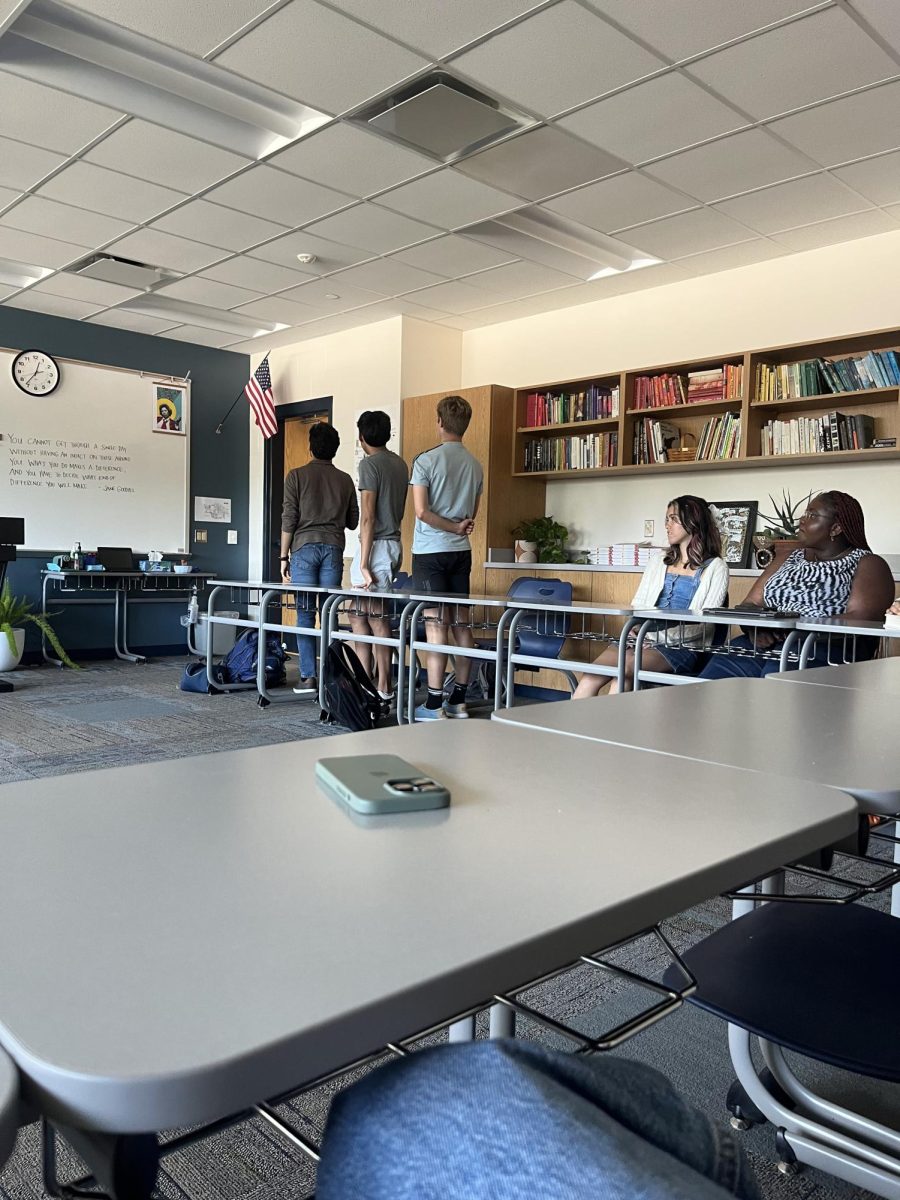

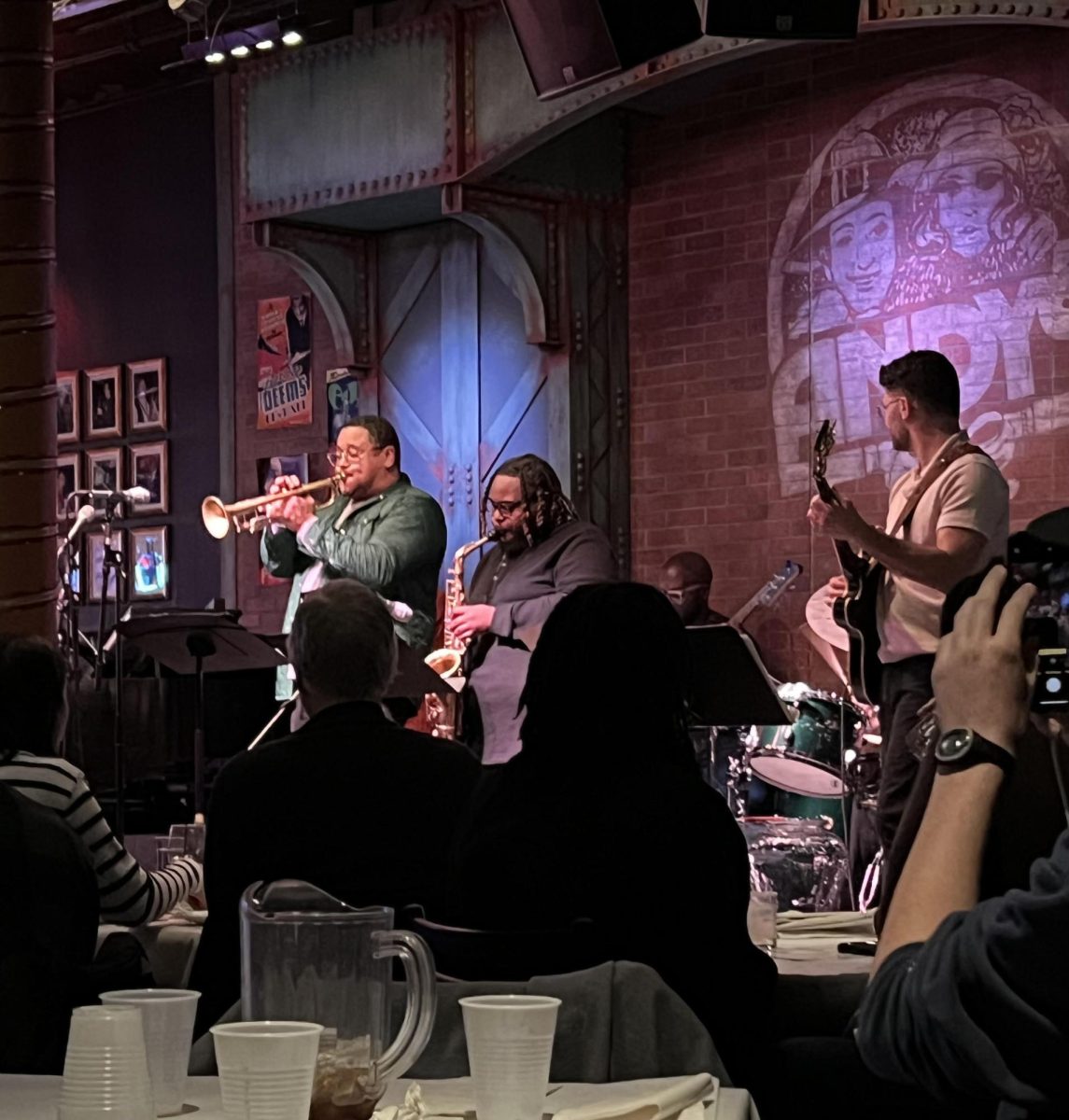

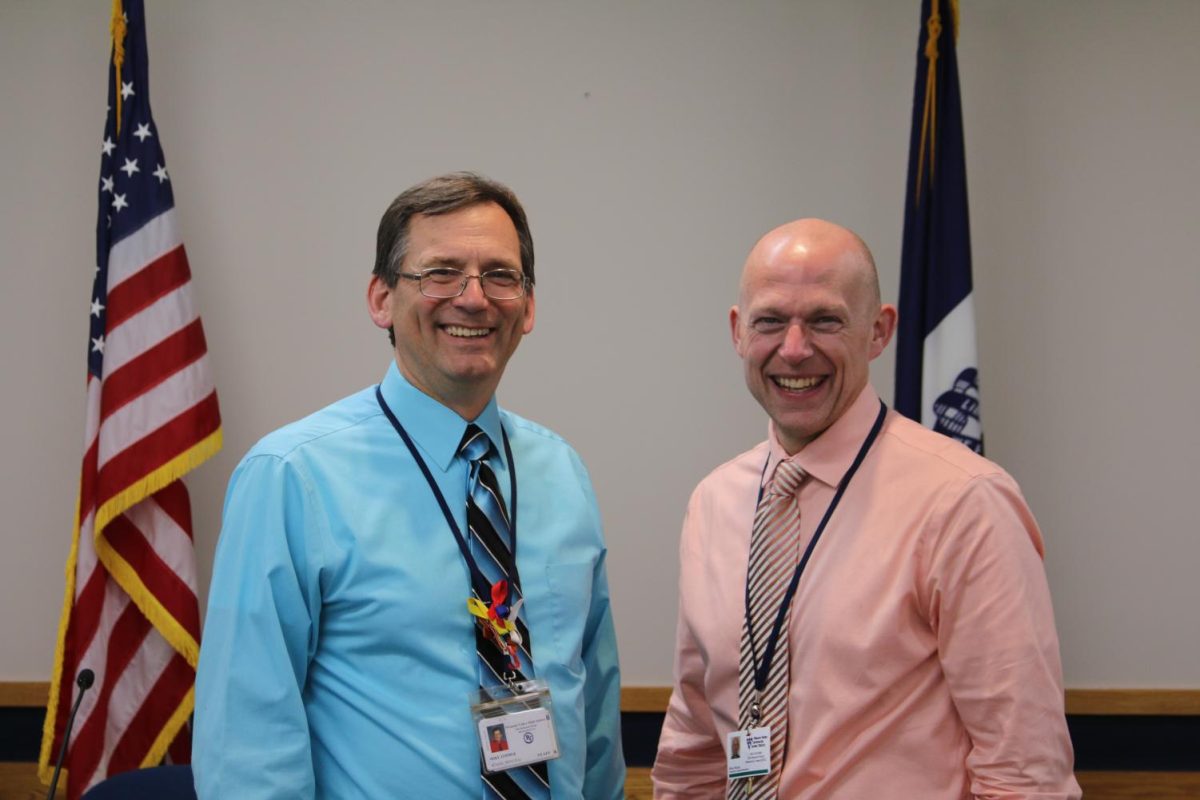


Nick Puthoff • May 12, 2024 at 4:23 pm
I have to agree while many don’t know that there are many eclipses each year it was a very special thing that the students got to see. Even though we were not in the direct path of the eclipse it was a good experience